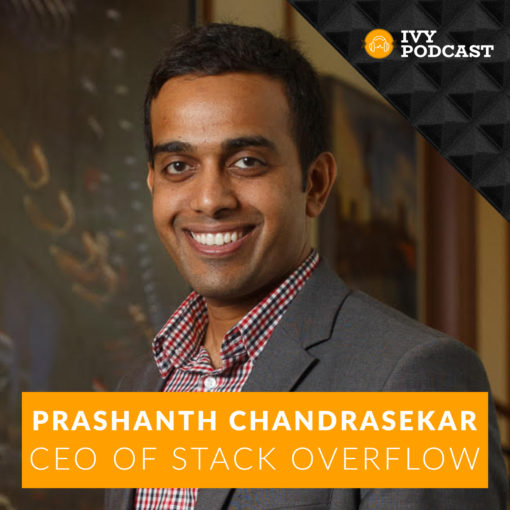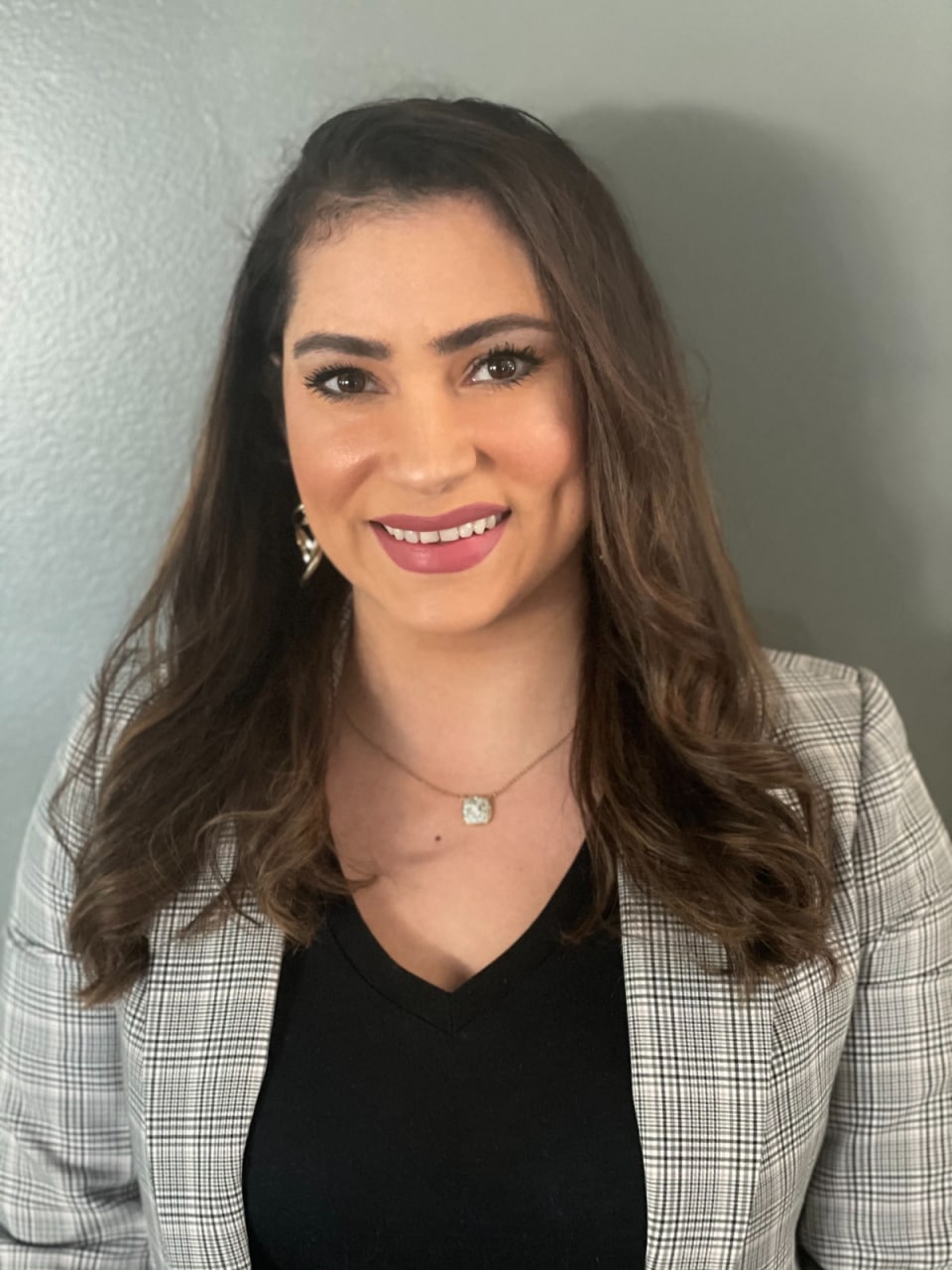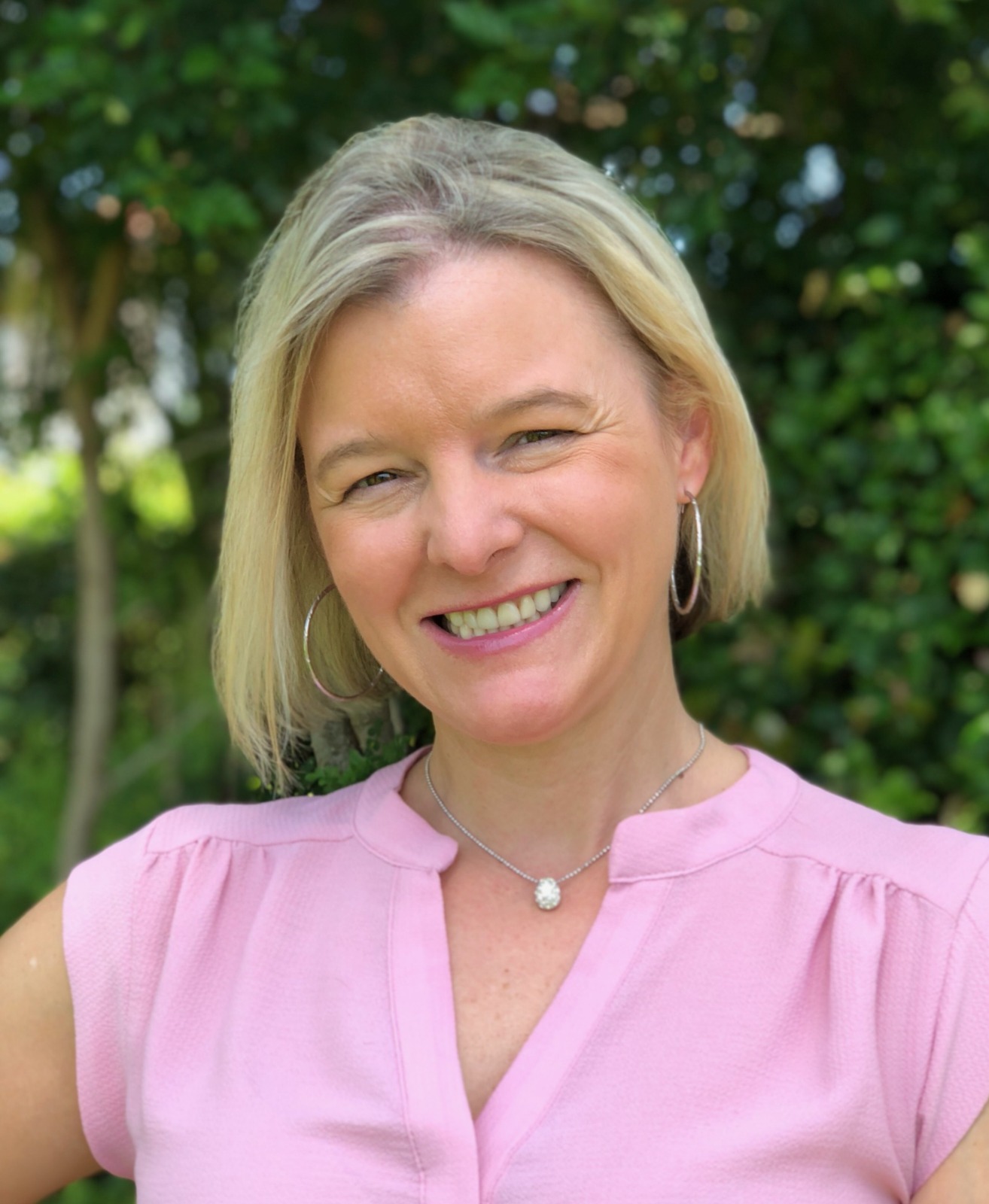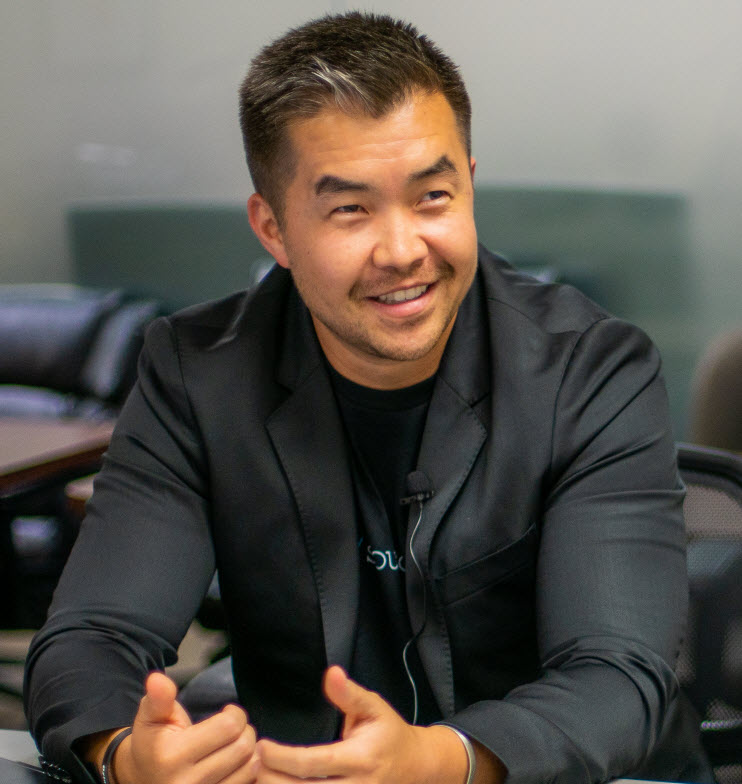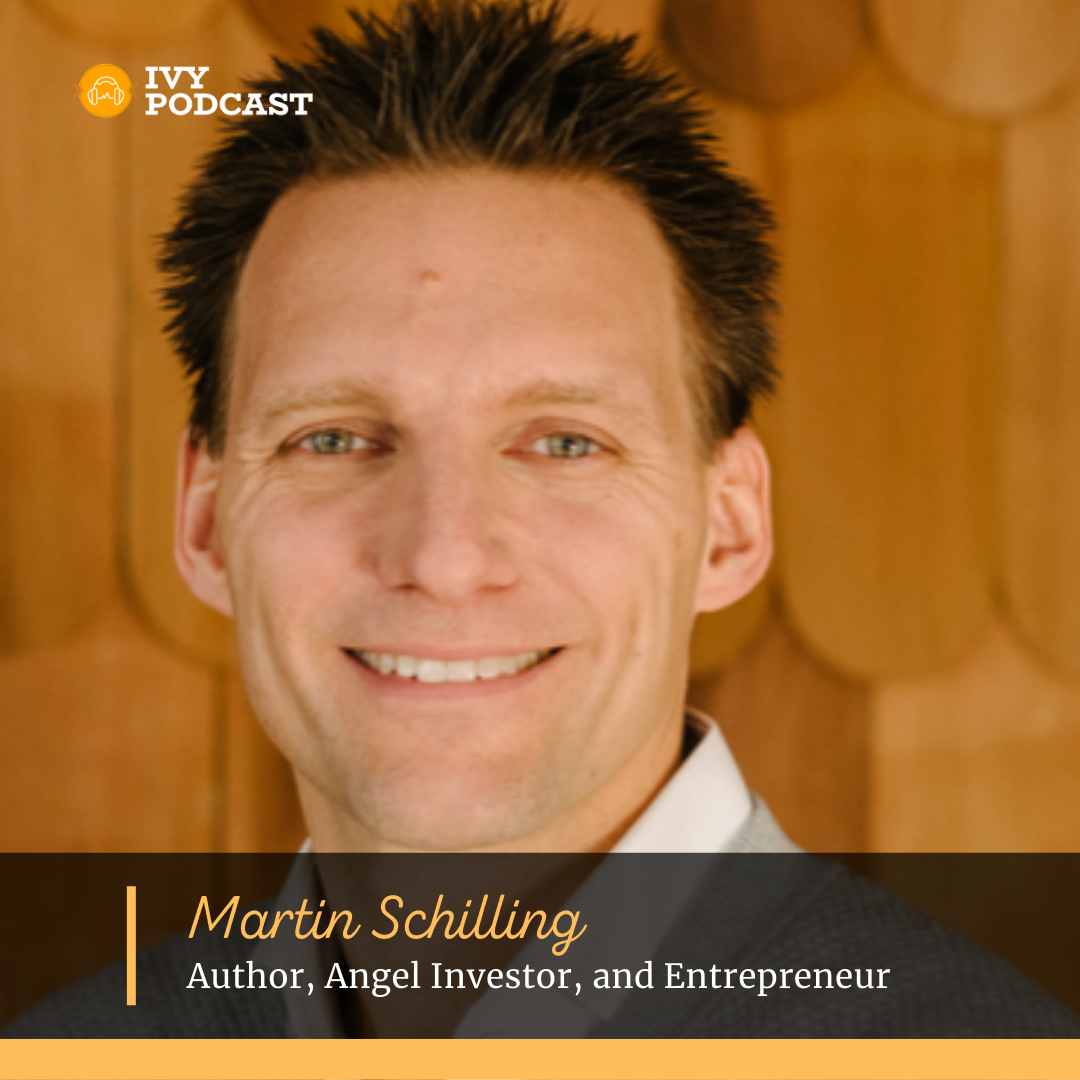
As an angel investor, startup builder and scale-up executive, I believe entrepreneurship is one of the most effective ways to be a force for good. In the past 15 years, Martin has co-created and scaled up five companies, including a subsidiary for McKinsey & Company and the FinTech N26. Turning tech startups into unicorns is his passion.
As a serial entrepreneur, he believes we not only need more late-stage venture capital, but more skills and knowledge to turn more startups into scale-ups. To this end, he is currently writing the book “The Builder’s Guide to the Tech Galaxy – 100 Practices to Upgrade Startups into Unicorns Companies”. Martin believes that we, builders, are the inventors of the 21st century, and he is doing everything he can to support entrepreneurs working toward that mission.
If you want to pre-register for the book “The Builder’s Guide to the Tech Galaxy”, you can do so here: https://buildersguide.org
Topics:
- Qualities that help in building high-performing teams
- Strategies on how small startups can acquire growth capital
- Finding your north star that can help serve as part of your organization’s guiding principles
Episode transcription:
[00:00:11]Fred Obiero: [00:00:11] Hello and welcome to the Ivy podcast. My guest today is Martin Schilling. He's the former COO at the End 26 Group, and is currently working on a book. Thanks for joining us Martin. [00:00:25] Martin Schiling: [00:00:25] Thanks Fred for having me, it’s really a pleasure to be here. Fred Obiero: Wonderful. So give us a brief introduction about yourself and your role, and maybe a little bit on what excites you the most about becoming an entrepreneur and also about writing the book. [00:00:37] Martin Schiling: [00:00:37] Yeah, sure. Look, I have been an entrepreneur all my life. So what excited me most is walking paths that no one walked before. Essentially venture into the unknown with a great team and build amazing companies, which no one has done before. That's kind of my path. Since early days, I have created a youth parliament in my small Bavarian hometown. I went to Argentina and I created a foundation there. I then created my first company in Berlin, Australia. Consultancy worked a couple of years for McKinsey, super interesting years, whereas, well, I had McKinsey clients to create companies in the Middle East and Saudi Arabia for two years. And then I had to find a subsidiary in Germany. And I was then at a point in my career where I had said to myself, I never wanted to work for banks or insurances. And at that point in time, the six founders of Maxon 19 called me and said, look, don't you want to scale up? And 26, a FinTech European FinTech from around 300 people to 1,500, which was an amazing journey. [00:01:51] Fred Obiero: [00:01:51] There's some that you said that I want to follow up on, actually two things. First one, you said that you helped found the parliament when you were growing up. [00:02:01] [00:02:00] Martin Schiling: [00:02:01] Exactly. It was a youth parliament. So it was essentially that I lived in a small Bavarian town and there was the year of our mayor to create a youth parliament. So it was essentially a city parliament for youths. [00:02:20] Fred Obiero: [00:02:20] That's the idea, is that something that you did while you were also, I know at a younger age or just because of your experience? [00:02:27] Martin Schiling: [00:02:27] I've been driven since these days as well by let's say societal mission. This has always been important for me and more important than earning money. So for example, when I know you've said it before I'm currently writing a book and I'm super passionate about creating companies, in particular tech companies that will create millions of future jobs and secure the technological silver entity of countries. So [00:03:00] that was always a theme in my life that earning money and kind of creating valuable companies for investors is great in the pot. But the purpose to essentially make the planet a better place has always been a big thing for me. [00:03:15] Fred Obiero: [00:03:15] And I also was going to ask, what made you go from Germany to Argentina? What was it that had you crossed the Atlantic to get all the way over there? Is there something that you would apply for? Did they just find you, how did you end up in Argentina? [00:03:30] Martin Schiling: [00:03:30] I was dancing tangle Argentina on bad days a lot. So I wasn't either a passionate hobby, tango dancer. And I thought to myself when I experienced this on world-class and Argentina is the one place to go. [00:03:48] Fred Obiero: [00:03:48] So Martin, I have spoken briefly about the book that you're currently working on. Could you please tell us more about it. And the book is titled The Builder's Guide To The Tech Galaxy. So that's a very unique name. First of all, tell us a little bit how you came up with the idea of writing a book and what the user would do that the readers will take away from having read the book. [00:04:10] Martin Schiling: [00:04:10] Yeah, of course. So look, essentially, this is the book, which I would love to read before joining End 26. So essentially it's a book for scale-up bidders because we have the phenomenon in particular, outside the US I would say that in less mature ecosystems, startup ecosystems, you have many people who have not yet scaled up companies before. So we're re-writing this book for aspiring and current leaders of startups with the ambition to make their companies big. And the idea is we want to shorten learning cycles. If you read the book, that's the idea. You can avoid some of the errors we made in scaling companies. And we want to shorten the learning curve from, let's say three quarters to one quarter. [00:04:59] Fred Obiero: [00:04:59] What are some of the areas that you think a lot of startups make when they bring in new people and trying to scale up, or are those common mistakes that you've seen many companies fail and how have you helped companies navigate that so that they end up being successful? [00:05:15] Martin Schiling: [00:05:15] Yeah, exactly, these are the four building blocks, these four pitfalls, your fund to which we're talking about in the book. So essentially the first is having a super clear North Star direction. Can I elaborate that in a minute? So that's one tool bringing in a triple eight team. That's the two things. The third thing is building functional excellence in your scale-up functions with functions, we refer to product management. For example, technology operations marketing says that it took a set set of functions and finally getting enough growth capital. I think these are the big four building blocks for operational scale. That's very important. We are writing here, not about business model or business model innovation. That's another topic as well. Very relevant. The focus of the book is organizational scaling. [00:06:05] Fred Obiero: [00:06:05] So let's talk about the North star that you just mentioned. One of the four things that you mentioned, what do you mean by the North Star and how can it help the readers in becoming successful in their profession? [00:06:16] Martin Schiling: [00:06:16] So, many companies, many startup companies are very fast and good in creating a business ambition and all that. They have been asked this many times. So creating a business ambition is easy, but there are around the business ambition, five more important dimensions of direction, which have to be scaled up and need to be in place. The more, the better, the more direct you have, the easier, the more autonomy you can give to your teams. So in these elements of direction, our first purpose is beyond profit. So how does your company, or why does your company make the planet a better place? That's the first second company [00:07:00] values. So one of the guiding principles of your company, then third business ambition. What I just mentioned. So what's the business outcome in the long run for North star metric. What's the one metric which really counts in your startup? And then finally the company value proposition. What is the unmet need you address to which target group? And these are the five key elements, and then you need to bundle this into annual or quarterly, all chaos. [00:07:27] Fred Obiero: [00:07:27] Okay, so, okay. Objectives and key results, right? [00:07:29] Martin Schiling: [00:07:29] Key results. Exactly. Essentially, this is how you translate this North Star, the direction into actionable items for your teams or this thing that filtered down to everyone that's working on this charter, or are they more broad, broadly applied on the executive level and the founder level? So the principle is usually that you scale one cascaded down in the organization. So there is an objective and key result on the company level. Then there isn't any objective [00:08:00] and key results may be on your inner directors level. And then for the team member, that's the theory. Most important is to have it on a company level so that the executive team is extremely clear on the top three to four keys to focus on each quarter and as well, one year's perspective on that already makes a big difference with an office done. [00:08:24] Fred Obiero: [00:08:24] When you were breaking down the North Star, you mentioned metrics. Give me an example of a metric that you can look at or these internal metrics that are Intel within the startup, or are they external metrics, like compare with the competitors? What kind of metrics do you look at? [00:08:40] Martin Schiling: [00:08:40] So, Airbnb, that's the super well in kind of defining a North Star. So this, we can do it through some, they say their purpose beyond profit is create a world where everyone can belong. It's beyond profits. It's kind of this belonging that is at the core of that purpose. Then they have some company values, be a host, so kind of [00:09:00] braced the adventure in something like this. And then you'll return to metrics. Then they have the first metric: business ambition gives a hundred million people an opportunity to earn income. And that's kind of an external metric to the hosts and the number of guests per night. That's an offset metric. So then that's one of the key indicators they're focusing on optimizing, increasing the number of guests per night, and then they have the value proposition. Something like we enable travelers to benefit from a truly local experience and also benefit from extra income. [00:09:33] Fred Obiero: [00:09:33] Got it. So, the metric basically covers both internal and external metrics that they're tracking to make sure they're sticking within the North star principle. Right? [00:09:41] Martin Schiling: [00:09:41] Absolutely. And that's the nice and the OKR framework. That's very flexible. So you usually have internal, external metrics, these shift over time, but it's important. That's the North star idea. You should have one very stable metric. So for example, the End 26, we are using monthly active users. So it's not for example, sign-ups. It's the monthly active user who really used the account. [00:10:05] Fred Obiero: [00:10:05] Okay. That's a good segue. So you previously worked as a COO at the End 26 Group located in Berlin, Germany. How does the North star principle apply to those that are leading larger organizations? Do you have any examples that you can share? [00:10:21] Martin Schiling: [00:10:21] So certainly, and what I just said applies there as well. So many startups and scale-ups I worked with. I'm very clear in the business ambition, which is good, but many are not so clear in particular around purpose and around value proposition. And why is that the case? Because you are so under pressure in a scale-up. And in a startup with operational work in particular, the leaders that you often do not find, or do not take enough time to shop the North star. So this is why I believe it's super critical that at least every quarter you have some kind of letter from the executive team to the company, or a two pager where you reach, find your North star. That's usually not done enough. And the clearer you are there, the easier you get growth capital and the easier you attract talent. [00:11:17] Fred Obiero: [00:11:17] So when you redefine the North star, is that based on, let's say customer feedback changes in the industry? What would make you want to really find the North star on a quarterly basis? [00:11:29] Martin Schiling: [00:11:29] Yeah, it's a good question. Read this. That's not a bit of art, not science. So there is certainly an element of founder vision in it. So you need to have some interesting inspiration. You need to look at industry trends. You need to look at what your customers want. So there's no one size fits all sensors. The key is you need to have multiple sources where you concentrate and in particular taking the time to really do it. [00:11:59] Fred Obiero: [00:11:59] Great. So you also talked about functional excellence, building a high performance scale of functions. What are some of the qualities that help when it comes to building high-performing teams? [00:12:11] Martin Schiling: [00:12:11] So, the first thing one needs to understand when it comes to functional excellence in scallops is that you need to enable a journey of specialization. So you're an early pirate ship team. They are the generalists, the intelligent generalists. You can throw them essentially any water and they will swim at one point in particular, when the company gets around a hundred FTE and Sirius B is a typical turning point. You need to hire experts. Someone who has seen scale ups before effort could be a marketing expert, even deeper, a performance marketing expert. It could be a platform engineer, people who have seen it before. So you need to enable this journey of specialization. Now what's the problem? The problem is you have been rising silos because the complexity within these functions, marketing operations product, et cetera, at least is increasing day by day. And it's only natural that your team starts focusing on the worst yet. So they are building a great function, but they look inside their own site because they have to a certain degree this, and that's why as the leaders of the company, they need to install several principles to bridge the silos. And a couple of these principles are customer centricity. You really need customer centricity at the heart of your company. So for example, having one metric around customer centricity, sitting alongside. Profits and growth. That's one of these principles or, and it's snowed on. You need to really make sure that it's a learning journey, that all the teams engage in a running journey, or then autonomy to act, to empower cross functional teams to work together towards joint objectives. So the principle is essentially your rising silos and you need to bridge the silos. [00:14:05] Fred Obiero: [00:14:05] Follow up to that. You talk about AAA-teams, hiring AAA-teams. How do you go about first of all, what are AAA-teams and how do you go about acquiring that level of talent? [00:14:16] Martin Schiling: [00:14:16] Yeah. Triple talent is for me a team which has the potential to accompany you to unicorn Lebanon as, so essentially people, they don't have to be experts, but they need to have the right mindset and kind of the general abilities to really go with you. The full lock and the bar can not be high enough. This is really important. There is often an arrow made and I made it myself. You are a lot of you're not, you don't have a lot of time. You have to be under pressure. You lower the recruiting bar and you get people in where you say, let's see if this works. It is almost always better to delay the hiring until you have really outstanding candidates. That's kind of the first mindset and to get this triple talent, that's super critical. You need to understand that the company applies to the AAA talents, not the separate talent to you. And that means you shouldn't take no for a note, it might be that you need to follow up with a triple-A candidate, half a year, giving him or her a call every month, a call sending, some podcasts or some white papers to really communicate that this person is the one you need. You might need someone, someone might move from Silicon Valley to Berlin and you need to take care of his or her partner to find a job in Berlin, yet you really need to walk the extra mile to get the stipulate talent. [00:15:46] Fred Obiero: [00:15:46] That's fascinating. And it's one thing that there's a book that I read about having the right talent and an example that was listed in that book was Amazon Jeff Bezos. He doesn't feel a position until he feels like he has the right candidate for that position because a metric that he found is okay, If you make the wrong hiring decision, you'll spend 80% of your time managing the wrong decision and he'd have a field level position unfilled until he has the right candidate to fill it. So that kind of relates to what you just explained on that previous example that you gave, and I'm seeing how you drawing the parallels to a bigger company like Amazon, even though we applying this to a startup kind of set up for scaling up. [00:16:33] Martin Schiling: [00:16:33] Yeah, exactly. And one thing is, it's much easier said than done because you are feeling the pressure and the pain of non hiring and to sustain this pressure and pain. And that moment really keeps searching for great candidates. That's kind of not totally trivial, but absolutely essential to do. [00:16:54] Fred Obiero: [00:16:54] So as you are spending, let's say months or up to a year, trying to fill this position. What do you do in the interim to make sure that that unfilled position, that role is being fulfilled? Do you just have somebody else assume part of that responsibility? Does it just become a shared responsibility among multiple people? How do you go about filling that gap in the end? [00:17:16] Martin Schiling: [00:17:16] Yeah. Good question. You need to think about talent lying in a portfolio. So it's essentially a seminar on investment. You need your thing in portfolios and investing in several people in several assets. So the idea that you bring us up to a position that you're not dependent on one person needing. That means you need to over-hire a bit. So you need to proactively hire, or did you start hiring all four? Maybe you don't only need the person six months ago, six, six months in the future. So this, to bring yourself in the position that you can afford to wait two, one to two months or three, that's kind of really, really key. And you're awesome. I'm surprised how capable the existing [00:18:00] team is. If there is a gap, and you have this philosophy of hiring AAA-talent, the younger AAA 10 steps. So, there are several aspects as well of not filling the position that can be beneficial. [00:18:18] Fred Obiero: [00:18:18] Good. My next question is about how startups can grow. What are some of the best strategies on how to go about acquiring both capital? [00:18:28] Martin Schiling: [00:18:28] So when we talk about growth capital, we usually mean serious B and follow-ups. So that means $20 million checks and above. So it's more the bigger checks. That's what we refer to when we talk about growth capital and in the growth capital stage, the fundraising game is a bit different. So, whereas in serious A and the early phases story and team really counts in the growth rounds the business model and the performance to [00:19:00] date are much more relevant. So what's key is, there are six questions. A growth investor usually has on his or her mind, and you should be web first is fund fit. So do you at all with your company fits to the investors fund, there is helpful to very early ask the investors. What numbers they want, or what's the check size they're looking for? And what's the rough Federation? That's one, two timing. Why now? Why should we invest now? Invest in your startup or scale-up. So essentially, are there any trends, technology trends, technology to technology or capital trends, regulation trends that facilitate growth? That's two, three market potentials. Is your service available in the markets? Greater than 1 billion US dollar. It's the service, not the total addressable market. So the percentage of the total addressable market should be bigger than 1 billion US dollar globally. [00:20:00] Fourth category leadership, a very important question to many growth investors. Have you invented a category or are you going to eat a category? It's that important then obviously the business model. So that's the company's performance to date showing a path to become profitable in the midterm. And then they usually look up on figures like net revenue retention or something like customer lifetime value over average customer acquisition costs. And finally the team and a great growth team is a team with clarity of thoughts. So here again, it connects to the North star being very clear on what you want to achieve. Crystal clear will help you attract growth capital. [00:20:44] Fred Obiero: [00:20:44] The last question is something that they get asked a lot and I'm curious to see your take on it. What are some of the ideas that you can share on how smaller startups whose members lack experience of previously working on a startup can raise funds? How do they go [00:21:00] about that? [00:21:01] Martin Schiling: [00:21:01] Yeah. Look, the couple of principles I would apply first. Impossible is nothing. The impossible is nothing mindset. So really aim high. So I have a global ambition. So for example, it's not about providing, as an example, better recipes for cooking that affects you in the US, it's a global platform to bring together global food stars and their fans, it’s to really think big. That's the one thing which really makes the first difference. The second. Plan with a hundred notes. It's really, really important. A great entrepreneur is persistent in the face of rejection. And every one of these nos need to make you stronger if someone tells you, no, I don't think this is a good idea. It's often not you or you're a year it's maybe the other side who didn't get it. You need to be flexible to change your idea and adopt it, of course. But every note should make you stronger. No, that's the second. And then finally it's about, as we said before, it's engaging on a learning journey and very early on, you will face failure. Your hypothesis fits totally. And to quickly go into these learning cycles. That means, maybe starting with service, like with customers talking to a hundred potential customers to really start getting into this learning cycle. That's where for investors, very inspiring to see. [00:22:34] Fred Obiero: [00:22:34] I think my favorite phrase so far in this episode is that every notion makes you stronger. I'm saying that because that doesn't only apply to startups, it should apply to everything, everything in life. And I like the mindset. Absolutely. What's the one tip you can share with our readers on how they can apply some of the recommendations that you described in your book. [00:22:59] Martin Schiling: [00:22:59] No, it connects [00:23:00] what you just said very much. I think being an entrepreneur is having the right mindset. And for me, It has always been a combination of this. Impossible is nothing, dream big and almost a Socratic modesty to embrace failure and learning. Second step. There's a super cool story. There was a guy in 1525, he was called Nuno Garcia, the Torino, and he painted the so-called Salvia Yachty World Maps. And this was a word of a map of the known territory these days, but he left them unknown spaces blank. So he invited me with this exploration. It was common these days to paint dragons and mythical Korea greatness in unknown spaces. No, he left the map black and he invited this exploration. So I think this is really a call for all contemporary [00:24:00] entrepreneurs to venture into the unknown and to explore the open spaces and build great tech companies. [00:24:08] Fred Obiero: [00:24:08] Going back to your book. What do you hope that their readers take away from having read the book? And also when will the book be available for purchase? [00:24:14] Martin Schiling: [00:24:14] [00:24:16] So first it will be available next month. So we are currently in negotiation with a couple of publishers. We haven't signed a contract yet, so it will take a little bit, but it will be very soon. [00:24:29] Fred Obiero: [00:24:29] And next month, you mean may 2021, right? [00:24:32] Martin Schiling: [00:24:32] It will certainly not be for the summer of 2021. Fred Obiero: Got it. Martin Schiling: So, yeah. And the one thing which I would love that the readers take away is that the best time to create and scale startups is now, and I want readers to leave. Golden cages of the corporate world, if they are there and then share with us into the startup or ads and build many, many great startups. And scale-ups, so that's kind of the spirit of the Pope. We want to encourage entrepreneurs, potential entrepreneurs to start bidding. [00:25:12] Fred Obiero: [00:25:12] Wonderful, wonderful suggestion. There's also one thing that I like asking all the guests that come with my episodes, because people have different experiences as they ascend in their professional careers. What has helped you get to where you are? And what advice would you give to someone that wants to pursue a career that's identical to yours? [00:25:35] Martin Schiling: [00:25:35] So my advice would be to look for a good school to learn. Early or mid in your career? Earlier than later, my school was McKinsey. I worked for McKinsey and combined this with my own entrepreneurial endeavor. So this combination is very powerful. It doesn't have to be a [00:26:00] consultancy. It can be as well, a big tech company or really great scale-up, but it should be an environment where you learn from excellent people. So you need a school, but then you need autonomy and courage to try out your own ventures. And if you combine this, you're perfectly set up to become a successful entrepreneur. [00:26:21] Fred Obiero: [00:26:21] Martin, thanks a lot for coming on and talking to us. I can't wait to get a copy of your book so I can read some of those principles and apply them to my own self. [00:26:31] Martin Schiling: [00:26:31] Thanks Fred. Thanks for having me. It was a pleasure to talk to you.
Welcome to Ivy Podcast! On this Executive Leadership Podcast we interview top executives from Fortune 500 with a focus on strategy, innovation, negotiation and everything about leadership.
Our Podcast for Executives features Thought Leaders who share practical insights for effective leadership, continuous innovation and strategy execution.
Ivy Podcast is a rapidly growing Executive Podcast, which covers topics like Hiring and Retention Strategies, Talent Acquisition, Innovation, Digital Transformation and much more.
On this Leadership Podcast, you will find conversations with the most accomplished executives from Fortune 100 companies. We aim to cover a broad range of industries and create a learning platform for the most ambitious and high potential professionals who are looking to learn from the most accomplished Executives on this Business Leadership Podcast.



